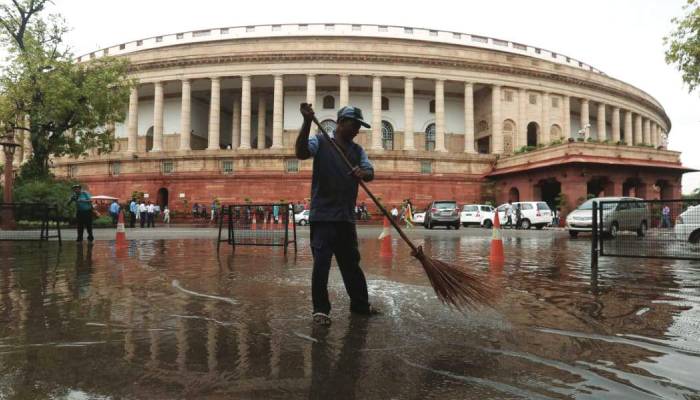
or

The Parliament recently enacted a crucial piece of legislation called the Fugitive Economic Offenders Act, 2018 to provide measures to deter fugitive economic offenders from evading the process of law in India by staying outside the jurisdiction of Indian courts, to preserve the sanctity of the rule of law in India and for matters connected therewith or incidental thereto.
It certainly aims at providing a muchneeded relief after Indian Banks being defrauded by such high socialites.
The new legislation will prevent big economic offenders like Vijay Mallya, Nirav Modi, Mehul Choksi and many more from fleeing the country and evading the law.
The new law allows designated special court to declare a person as fugitive economic offender and to confiscate his property, including ‘benami’ ones. Also all rights and title in the confiscated property shall, from the date of the confiscation order, vest in central government, free from all encumbrances who can dispose it after 90 days from the date of confiscation order.
Also, the financial limit of Rs. 100 crores for invoking the provision of this new law will help in catching big offenders and will not burden the court with such issues.
There are at least 55 economic offences covered which includes tax evasion, money laundering, transactions defrauding creditors, benami transactions, counterfeiting government stamps or currency and dishonouring of cheques.
The Special court under Prevention of Money laundering Act, 2002 (PMLA) gives a chance to Fugitive to have the proceedings terminated by appearing before it within six weeks from the date of issue of notice. If the Fugitive does not appear in person or through his counsel, the court will hear the case and may declare the person a fugitive economic offender.
A fugitive economic offender loses the right to defend civil claim under the bill and ordinance. It allows any court or tribunal to bar fugitive economic offender from filing or defending any civil claim before it. The court may even restrict a company from filling or defending any civil claim if the promoter, manager, managing director, CEO or majority shareholder has been declared a fugitive economic offender.
However, there are certain issues related to the said act. Thus, as the saying goes “there is no rose without a thorn” there are some loopholes in the act which are against our established law.
Neeti Gharat, currently working with Wockhardt’s Legal Team, as an Assistant Manager-Legal. Graduated from Government Law College (GLC). Started her practice mainly in Intellectual Property Rights and soon joined corporates

Lex Witness Bureau

Lex Witness Bureau

For over 10 years, since its inception in 2009 as a monthly, Lex Witness has become India’s most credible platform for the legal luminaries to opine, comment and share their views. more...
Connect Us:


The Grand Masters - A Corporate Counsel Legal Best Practices Summit Series
www.grandmasters.in | 8 Years & Counting
The Real Estate & Construction Legal Summit
www.rcls.in | 8 Years & Counting
The Information Technology Legal Summit
www.itlegalsummit.com | 8 Years & Counting
The Banking & Finance Legal Summit
www.bfls.in | 8 Years & Counting
The Media, Advertising and Entertainment Legal Summit
www.maels.in | 8 Years & Counting
The Pharma Legal & Compliance Summit
www.plcs.co.in | 8 Years & Counting
We at Lex Witness strategically assist firms in reaching out to the relevant audience sets through various knowledge sharing initiatives. Here are some more info decks for you to know us better.
Copyright © 2020 Lex Witness - India's 1st Magazine on Legal & Corporate Affairs Rights of Admission Reserved